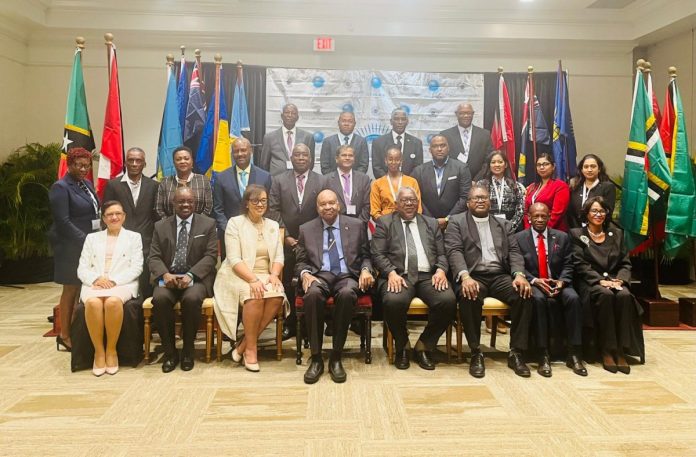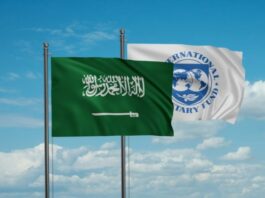
-
-
- Dr Denzil L. Douglas tells regional integrity commission delegates, “the local commission not fully operationalized”
-
BASSETERRE, St Kitts – Leader of the opposition and former prime minister of St Kitts and Nevis, Dr Denzil L. Douglas told delegates to the 8th Commonwealth Caribbean Association of Integrity Commissions and Anti-Corruption Bodies (CCAICACB) that fate has brought them to the twin-island federation when it is in deep crisis.
“In crisis due to deep, nation-wide concerns over governmental integrity, transparency, accountability, the main themes around which our current general election campaign revolves. Concerns that are being expressed not only by everyday men and women in this country but – before the dissolution of parliament – by every elected member in our country’s governing coalition, except two,” said Dr Douglas, pointing out that there is a great deal of work to be done.
In his address to the regional body at the St Kitts Marriott Resort, Dr Douglas said the current outgoing coalition government has refused – or failed – to properly operationalize the Commission in appropriate time and as a result the public’s clear interest in transgressions such as bribery and the illicit transfers of funds being investigated has been thwarted.
“The public would like to be able to review key government documents – but there is no Freedom of Information Act,” said Dr Douglas, who noted that under the previous government, there was a Public Accounts Committee which had both the right – and the responsibility – to ensure that government monies were being spent as authorized by parliament.
“Documents and recordings could be thoroughly reviewed, and individuals questioned – in the public interest. Public Accounts Committees protect and preserve the ethical underpinnings of governance. Indeed, a parliamentarian in a distant land memorably stated that Public Accounts Committees “tend to have a cleansing effect in government departments.” This is very true,” said Douglas.
He said the current government of St Kitts and Nevis has done away with the country’s functional Public Accounts Committee, as originally structured within the then-existing legislative framework under the previous administration.
“New legislation was enacted under which a new Public Accounts Committee was created almost three years in the life of the parliament, instantly stripping the parliamentary opposition of its crucial oversight responsibilities to ensure that government funds are actually being spent as authorized by parliament,” said Douglas.
“Instead of an authentic and functional Public Accounts Committee, the opposition has now been relegated and restricted to reading the Auditor’s Report and question in a restricted way its contents. Unfortunately, an auditor’s report provides neither the detail, the specificity, nor the insight that a Public Accounts Committee delivers. The parliamentary opposition is therefore stripped of its ability to request – and receive – a proper accounting of where government monies end up. It has ended the opposition’s right to function as a responsible steward of taxpayer resources and government expenditures,” Dr Douglas said.
He asked the delegates to ponder the following questions: “Why? Why would any government remove from its operations a functional Public Accounts Committee? Why would any government establish an Integrity Commission, in name, but then refused to properly operationalize that entity?”
Reaffirming the value of so many delegates from several Commonwealth Caribbean Integrity Commissions in St Kitts and Nevis Dr Douglas stated: “I think that you now understand why such was expressed.”
He further stated that governments in the Caribbean have been given a sacred task.
“Our people, for hundreds of years, toiled under the most horrific conditions to enrich others … to empower others. The courage, commitment, and integrity of leaders, who are no longer among the living, brought that horrific era to an end. And it is now our sacred duty to emulate their courage, demonstrate their commitment, and continue their integrity in order to enrich and empower the millions who vote for and count on us. An ethos of integrity within our governance structures is vital if our democracies are to survive.
“And so it is crucial that we, in the region, be aware of both the accomplishments and the failings of our respective States as we all strive to build Integrity Commissions. We have an obligation to both honor our ancestors and meet our sacred responsibilities to the living.”
Dr Douglas concluded that in St Kitts and Nevis, the sacrifices of the ancestors are not being honored.
“And our responsibilities to the living are being ignored. As a result, deep nationwide concerns exist. As a result, we are in crisis. Here, in this twin-island paradise, there is a great deal of work to be done.”
The Federal Commission in St Kitts is chaired by former High Court judge, Pearletta Lanns, who replaced Damian Kelsick who resigned in May 2019 after complaining of lack of funds to establish an office. Nevis has its own Commission.



